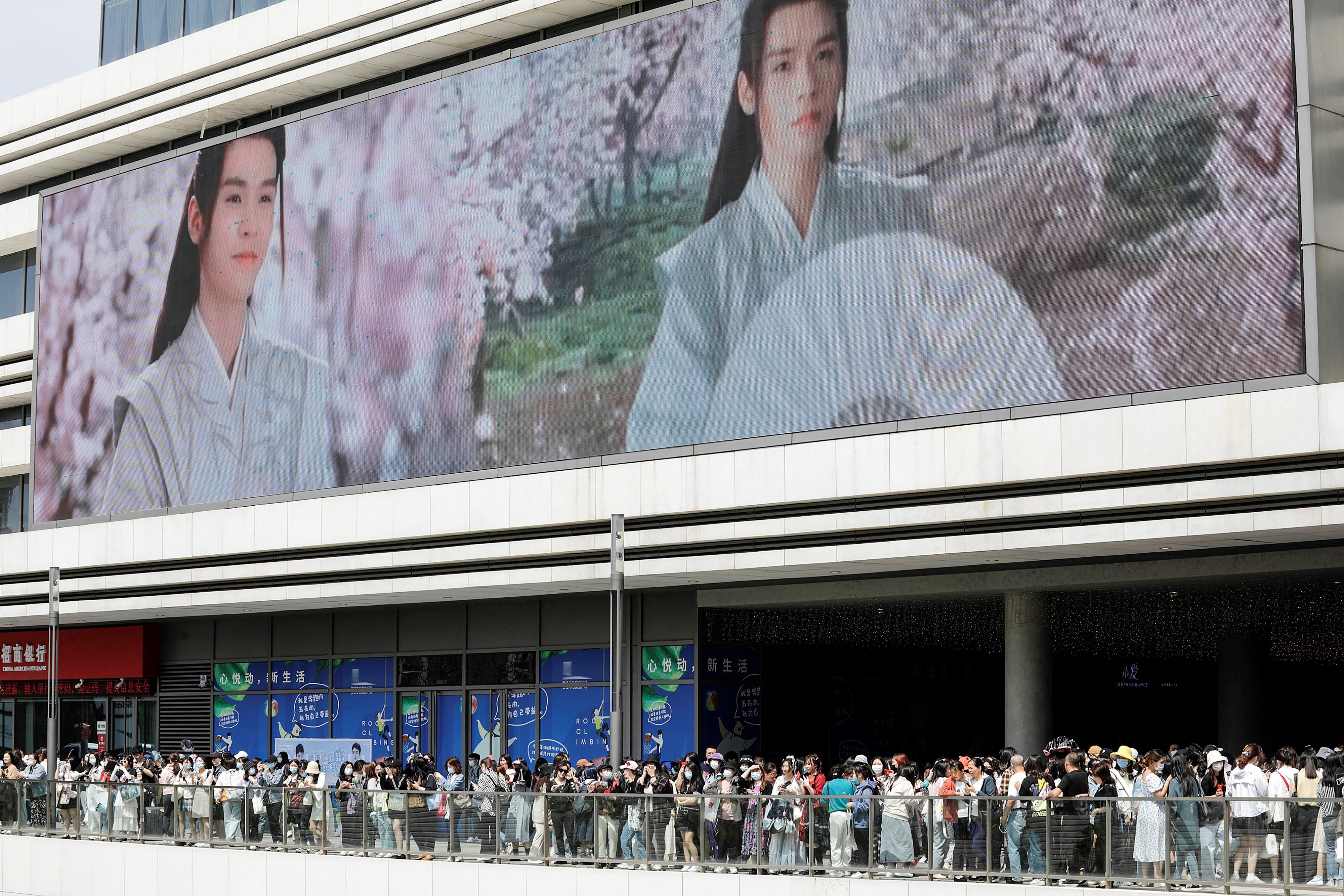Chinese authorities have reportedly launched a sweeping crackdown on writers of gay erotic fiction danmei, particularly those who publish online.
Police in the Anhui and Gansu provinces detained dozens of young authors, including college students, and accused them of producing and disseminating “obscene materials for profit”, the BBC reported. One writer, who made a mere ¥4,000 (£406) from tips sent in by readers, was reportedly summoned from Chongqing, around 1,000km from Gansu, for questioning.
Over 10 writers in Gansu have been investigated, and at least one prosecuted for “producing or distributing obscene materials for profit”, according to a report in Caixin. One writer from Chongqing who earned ¥21,313 had to repay what she made in addition to paying fines worth ¥50,000-¥60,000 (£5,087- £6,104), and even saw her graduate school admission revoked, the Radio Free Asia (RFA) reported. Another author who writes under their pen name Yun Jian, made ¥1.84m (£187,268) and was sentenced to four-and-a-half years in prison, according to RFA.
The wave of arrests, investigations, and sentencing is broadly viewed as part of China’s ongoing “clean internet campaign”, but critics have called the purge far too expansive and vague.
These arrests are often justified by China’s 2004 criminal law, which penalises “obscene materials for profit”. The law, amended most recently in 2010, expanded the definition of obscenity and strengthened penalties for online distribution, mandating up to three years’ imprisonment for pornography and up to 10 years or more if the offence is “especially serious”. Under it, earning over ¥250,000 (£25,435) can result in life sentences, while smaller earnings still carry prison terms.
Danmei, which translates to “addicted to beauty” emerged in the late 1990s, inspired by Japanese “boys’ love” stories and slash fiction. Initially flourishing in underground online fan communities, it evolved into a mainstream phenomenon hosted on commercial platforms like Jinjiang Literature City, founded in 2003, and Taiwan’s Haitang Literature City, which has become a haven for many writers and readers. Today, Jinjiang houses over 500,000 titles and seven million users, with danmei comprising the majority of its top 100 works. Though self-censored for explicit content since 2014, the genre continues to thrive under the guises of romance, wuxia, xianxia, and more.
What makes danmei distinct is its fusion of romantic relationships between men with broader narrative styles, often historical fantasy or martial arts. The cultural impact of danmei expanded massively when these web novels began leading to adaptations across multiple media. A prime example is Word of Honor, a 36-episode wuxia streaming series based on the novel Faraway Wanderers by danmei writer Priest. Starring Zhang Zhehan and Gong Jun, it aired in early 2021 and garnered international acclaim, ranking among the top BL dramas on Douban with an 8.6 rating and drawing millions of views on YouTube and Netflix.
Despite heavy censorship, these dramas have not only thrived domestically but soared overseas. Streaming platforms have purchased rights to adapt at least 59 danmei novels by 2020. The Untamed, for example, reportedly earned over 200 million daily views during its final broadcast month on Tencent, according to a 2022 study published in Sage Journals, while its adaptation of Heaven Official’s Blessing broke into Western anime fandoms.

Public reactions on social media have been strong, despite widespread censorship. On Weibo and WeChat, users questioned both the motives and moral alarm. ABC News reported that one writer, anonymous “Elsa”, said it was “unreasonable and ignorant to treat all boys love fiction as obscene”.
“It’s so unfair and such utter bulls*** what the government is doing. Really? Danmei authors face such actions while rapists and murderers never even come close to this. Make it make sense,” a Reddit user wrote.
The mounting public anger is fuelled in part by earlier high-profile cases that many viewed as disproportionate and politically charged. In 2018, Anhui courts sentenced a female writer under the pen name Tianyi to 10-and-a-half years in prison for her YA romance Occupy featuring male students and teachers, reportedly earning around ¥150,000 (£15,261) and selling 7,000 copies; critics said the punishment was heavier than many sentences for rape. Since 2004, successive anti-porn campaigns have shuttered danmei sites and triggered cycles of self-censorship on platforms such as Jinjiang Literature City, which rebranded its danmei section as “pure love” and banned any depiction of intimacy below the neck in 2014.
This policy shift is not occurring in isolation, but it reflects a broader ideological tightening under Chinese president Xi Jinping, who has repeatedly called for the “purification” of the internet and cultural industries.
In 2021, China’s National Radio and Television Administration issued a directive banning the appearance of “effeminate men” on screen and urging broadcasters to “resolutely put an end to abnormal aesthetics” and promote “revolutionary culture”.
The crackdown has already had a chilling effect, with authors already deleting stories, withdrawing from platforms, or halting publication altogether. Posts offering legal advice or information on copyright protections have disappeared from social media, and multiple writer accounts have been suspended or erased entirely, reported the BBC. While danmei fiction continues to circulate in smaller communities, creators say they are unsure what boundaries they are now expected to observe.



